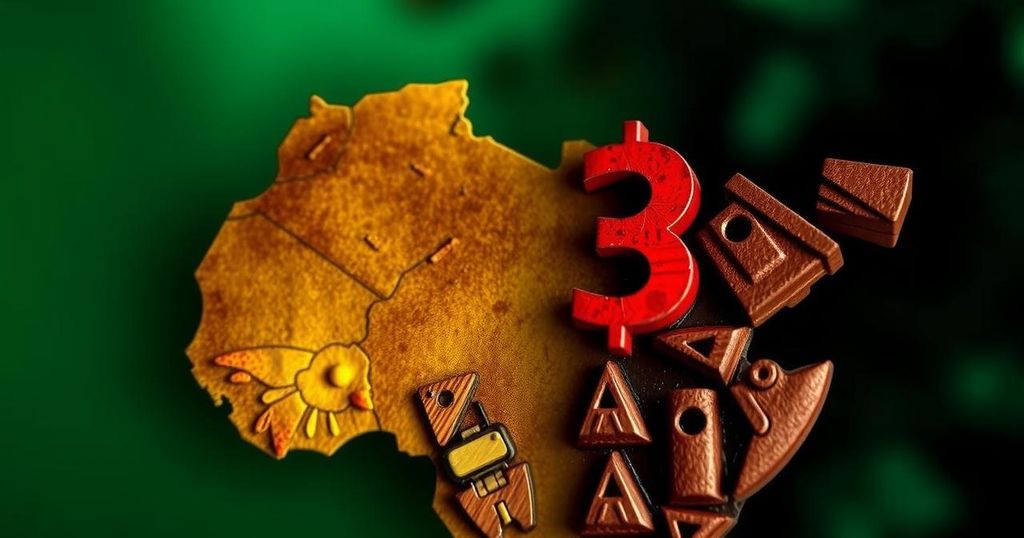Sudan is on the verge of becoming a failed state due to ongoing civil strife amid a proliferation of armed factions. Jan Egeland of the Norwegian Refugee Council has warned that a humanitarian crisis, marked by widespread starvation and displacement, worsens daily. Current aid responses are inadequate, and concerted international efforts are crucial to prevent further escalation and protect civilians from the devastating consequences of the conflict.
Sudan is at a critical juncture, facing the risk of becoming a failed state as the war between the army and the Rapid Support Forces (RSF) exacerbates civil unrest. Jan Egeland, the head of the Norwegian Refugee Council (NRC), has expressed grave concerns about the disintegration of civil society and the rise of numerous armed groups, illustrating a scenario where ethnic militias are contributing to widespread chaos and violence against civilians. The ongoing conflict has resulted in over 10 million individuals being displaced, triggering what Egeland has termed the “biggest humanitarian emergency on our watch”.
Despite the magnitude of the crisis, humanitarian efforts remain critically underfunded, with the World Health Organization highlighting that starvation is pervasive in Sudan. Soup kitchens have shut down due to a lack of resources, with Egeland stressing that the existing aid merely prolongs suffering rather than providing a sustainable solution. As many as 2.5 million people could face starvation by year’s end, underscoring the dire situation of food insecurity used as a weapon of war.
Egeland has further admonished the global community, particularly Europe, for not taking sufficient action to avert this impending catastrophe and to alleviate potential refugee crises. He emphasizes that peace can only be achieved when the warring factions reassess their stakes in continuing the conflict. The breakdown of peace talks between the RSF and the army continues, with no resolution in sight, as rights groups raise alarms about ethnic cleansing and genocidal actions in the war-torn nation.
The conflict in Sudan centers around a power struggle between the Sudanese army and the RSF, escalating over the past nineteen months into a full-blown civil war. This struggle has severely impacted the safety and well-being of civilians, leading to widespread displacement and humanitarian crises. Violence has surged, prompting concerns not only about immediate safety but long-term stability in the region. The conditions threaten to erode the structures of civil society, as armed factions proliferate and basic essential services collapse, raising international alarm about the potential for a complete state failure.
In conclusion, Sudan faces a grave humanitarian crisis characterized by rampant violence, massive displacement, and acute food insecurity. The active conflict between the army and RSF has led to a perilous environment, jeopardizing the nation’s civil order and security. International aid efforts remain critically insufficient, necessitating urgent global action to prevent further deterioration of the situation and to protect the civilian population from the devastating consequences of war. Without decisive interventions, the future of Sudan hangs precariously in the balance.
Original Source: www.bbc.com






